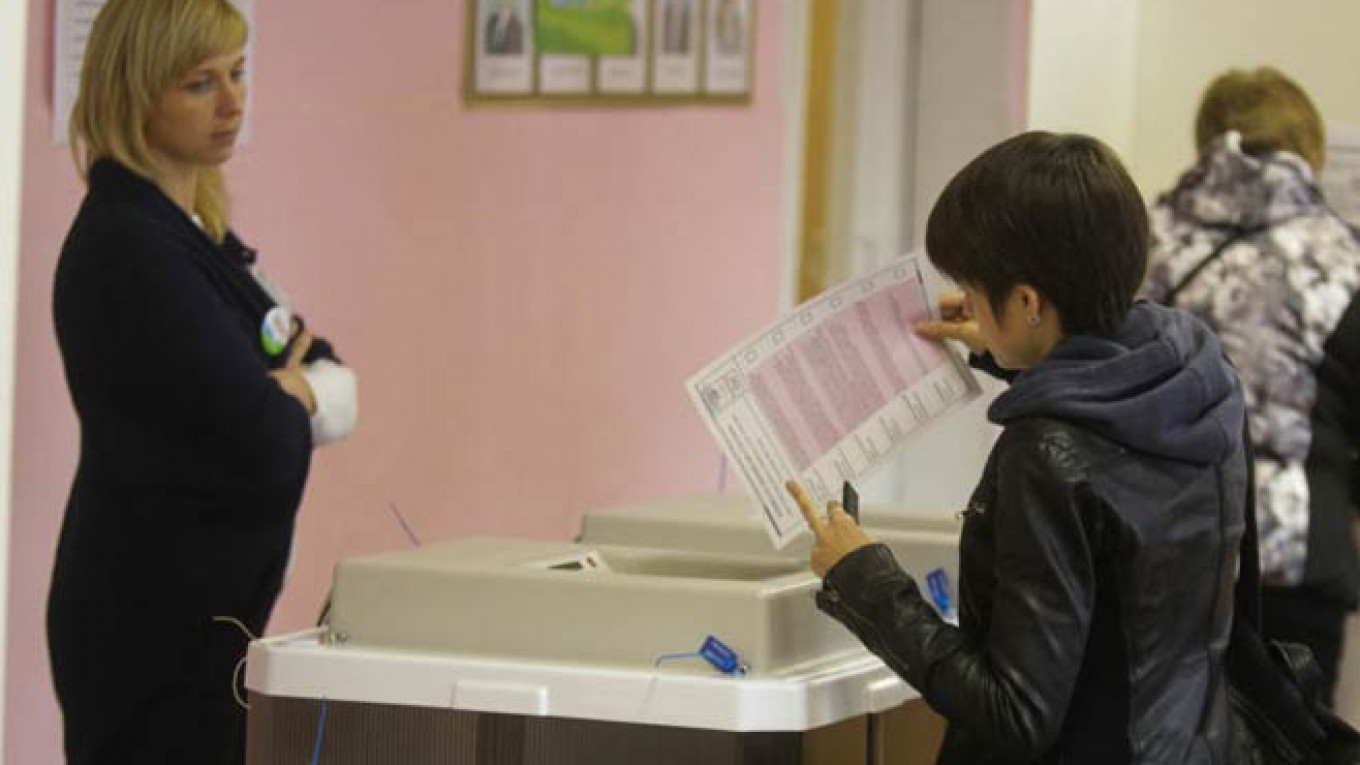The State Duma has approved in a first reading a bill that would put an end to direct mayoral elections in some of Russia's largest cities in what critics said was an attempt to ensure the appointment of mayors loyal to the Kremlin.
The bill was approved Tuesday by 237 Duma deputies, 11 more than the minimum needed. If passed into law, choosing city heads would become the prerogative of the city legislature, itself selected from the members of the directly elected regional Duma.
According to the bill, proposed by the ruling United Russia party and opposed by other State Duma parties with the exception of the nationalist LDPR, regional authorities would also win the right to remove city heads.
The bill would not affect mayoral elections in Russia's two biggest cities of Moscow and St. Petersburg, which are classified as subjects of Russia rather than regional centers, the BBC's Russian Service reported.
Politicians from other parties represented in the Duma, most of which are generally loyal to the Kremlin, have criticized the bill as taking the power of self-determination out of the hands of voters. Dmitry Gudkov, a State Duma deputy formerly of the Just Russia party, was quoted by Gazeta.ru as accusing his fellow lawmakers of hypocrisy, saying that while Russia was demanding that Ukraine hold direct mayoral and gubernatorial elections, it was canceling its own local elections.
The bill's authors said the measure would make city government more accessible to ordinary Russians, in keeping with a suggestion made by President Vladimir Putin in a speech to a joint session of both houses of the Russian parliament last month.
LDPR deputy Sergei Karginov defended the bill by citing a low turnout in local elections and said that the system works better when left to political parties.
"People get tired of elections, people do not want elections," he said, Gazeta.ru reported.
Non-Duma opposition leader Alexei Navalny took issue with Karginov's statements on his website Wednesday. The anti-corruption blogger said that the law amounted to State Duma deputies saying that Russians are "too stupid and irresponsible" to vote in elections.
Navalny, who formally garnered nearly 30 percent of the vote in last year's election for Moscow mayor, said that the "real front for the defense of Russians" was not in Ukraine — despite official statements about the need to defend the interests of Russian speakers there — but in Russia itself.
Other analysts said that United Russia and LDPR supported the bill to try to stop the kind of conflicts between regional authorities and city mayors that have resulted after mayoral elections brought opposition politicians to power. Recent opposition victories in Russia's regions include Civil Platform party's Yevgeny Roizman capturing the Yekaterinburg mayorship last year and Communist Party candidate Anatoly Lokot's win in Novosibirsk earlier this month.
"The authorities have realized that the process of losing power in the regions is not going to stop," Ilya Ponomaryov, an opposition Duma deputy from Novosibirsk who backed out of the city's mayoral election to consolidate anti-United Russia support behind Lokot, told The Moscow Times.
"[They realize] that the opposition is going to grow and grow."
The deputy was not optimistic about the future of the opposition in Russia's regions, however, saying that the bill would "of course" be adopted and that it only remained to work out the details of its formulation.
Ponomaryov said the bill would prevent future opposition victories and added that if the bill is passed in its current form, under which regional authorities would win the right to dismiss the city mayor, some elected mayors could lose their posts over the next few months.
Direct gubernatorial elections were restored in 2012, having been scrapped by Putin back in 2004.
Contact the author at c.brennan@imedia.ru
A Message from The Moscow Times:
Dear readers,
We are facing unprecedented challenges. Russia's Prosecutor General's Office has designated The Moscow Times as an "undesirable" organization, criminalizing our work and putting our staff at risk of prosecution. This follows our earlier unjust labeling as a "foreign agent."
These actions are direct attempts to silence independent journalism in Russia. The authorities claim our work "discredits the decisions of the Russian leadership." We see things differently: we strive to provide accurate, unbiased reporting on Russia.
We, the journalists of The Moscow Times, refuse to be silenced. But to continue our work, we need your help.
Your support, no matter how small, makes a world of difference. If you can, please support us monthly starting from just $2. It's quick to set up, and every contribution makes a significant impact.
By supporting The Moscow Times, you're defending open, independent journalism in the face of repression. Thank you for standing with us.
Remind me later.


